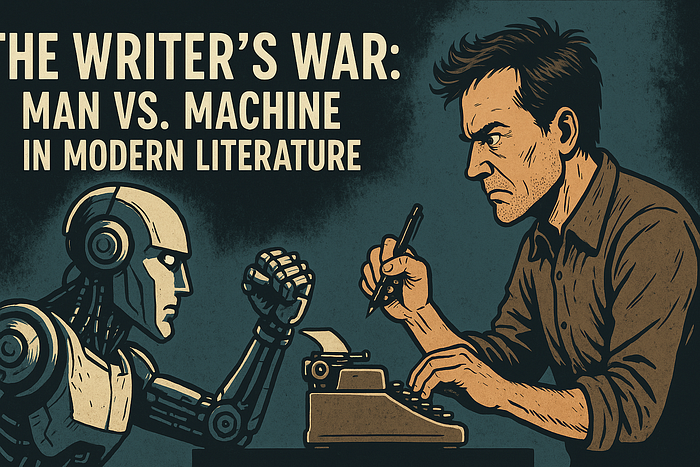The Writer’s War: Man vs. Machine in Modern Literature
 Joshua R. Clark
Joshua R. Clark
In recent years, artificial intelligence has become a powerful tool in the world of content creation. From generating blog posts to crafting product descriptions, AI writing tools are becoming faster, smarter, and more accessible. But for many human writers, this rise in automation brings both concern and competition.
The Changing Landscape of Writing
Writing was once a deeply personal craft, shaped by emotion, experience, and voice. Today, algorithms can produce thousands of words in minutes. While this may save time and money for businesses, it raises an important question: What happens to the human touch in writing?
Writers now find themselves in a space where creativity is being measured by speed and efficiency. It’s no longer just about writing well — it’s about keeping up with machines.
Many rely on simple tools like a Word Counter to stay on track with word limits and deadlines, but now they face pressure from AI programs that can write, optimize, and publish in minutes.
The Challenges Human Writers Face
One major challenge is visibility. With AI tools flooding the internet with content, human-written pieces often get lost. AI can produce more articles than a single writer ever could, which means search engines and social platforms are filled with automated text.
There’s also the issue of value. Some clients and companies are choosing AI over human writers to cut costs. This shift puts pressure on freelancers, journalists, and creative professionals to prove their worth beyond what a machine can offer.
Why Human Writing Still Matters
Despite the rise of AI, there’s something irreplaceable about human writing. Real people understand emotion, humor, culture, and context in ways machines still struggle to replicate. A personal story, a heartfelt opinion, or a thoughtful analysis carries a depth that AI-generated text often lacks.
Human writers also bring originality. AI works by learning patterns and reusing data — it cannot have new ideas or lived experiences. That’s where people still lead.
Finding Balance in a Digital Age
Rather than seeing AI as the enemy, some writers are learning to work alongside it. AI can assist with research, grammar checks, and outlines, while humans focus on creativity and storytelling.
The key is not to compete with AI on speed but to offer something deeper — insight, emotion, and authenticity.
Writers using supportive apps like WordCounter know that while these tools help refine structure or monitor progress, they still rely on the writer’s creativity, tone, and real-life experience to tell a story that resonates.
Final Thoughts
The rise of AI has changed the writing world, but it hasn’t ended the need for human voices. Writers may be facing new challenges, but they also have new opportunities to stand out. By staying true to their unique voice and perspective, human writers can continue to create content that connects, inspires, and lasts.
Original Source: The Human Writer’s Struggle Against AI
Subscribe to my newsletter
Read articles from Joshua R. Clark directly inside your inbox. Subscribe to the newsletter, and don't miss out.
Written by

Joshua R. Clark
Joshua R. Clark
Writers using supportive apps like WordCounter know that while these tools help refine structure or monitor progress, they still rely on the writer’s creativity, tone, and real-life experience to tell a story that resonates.